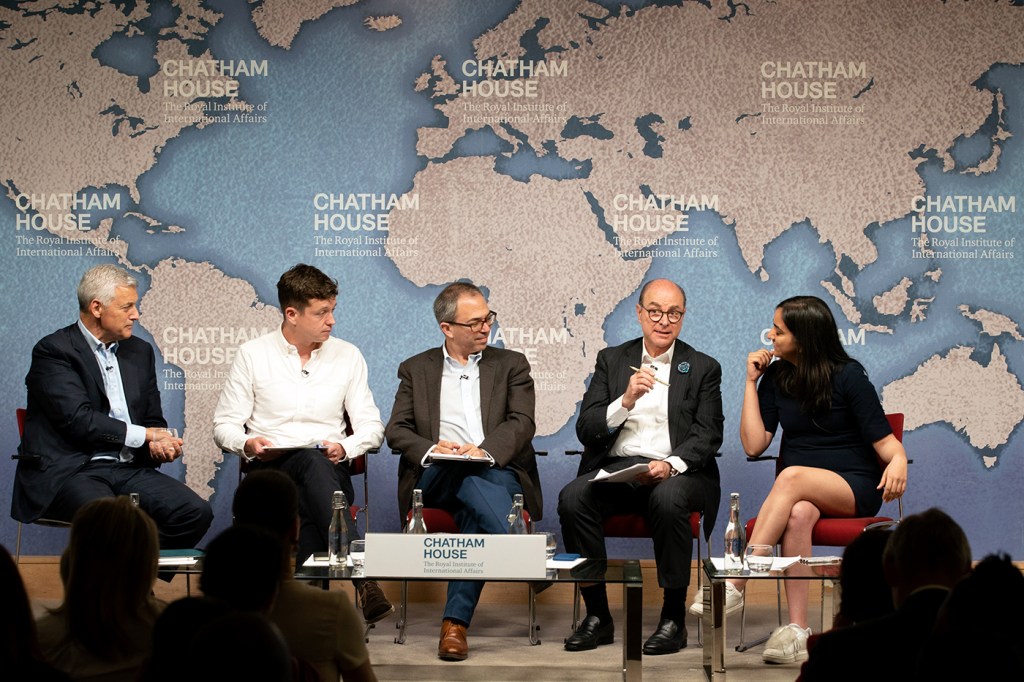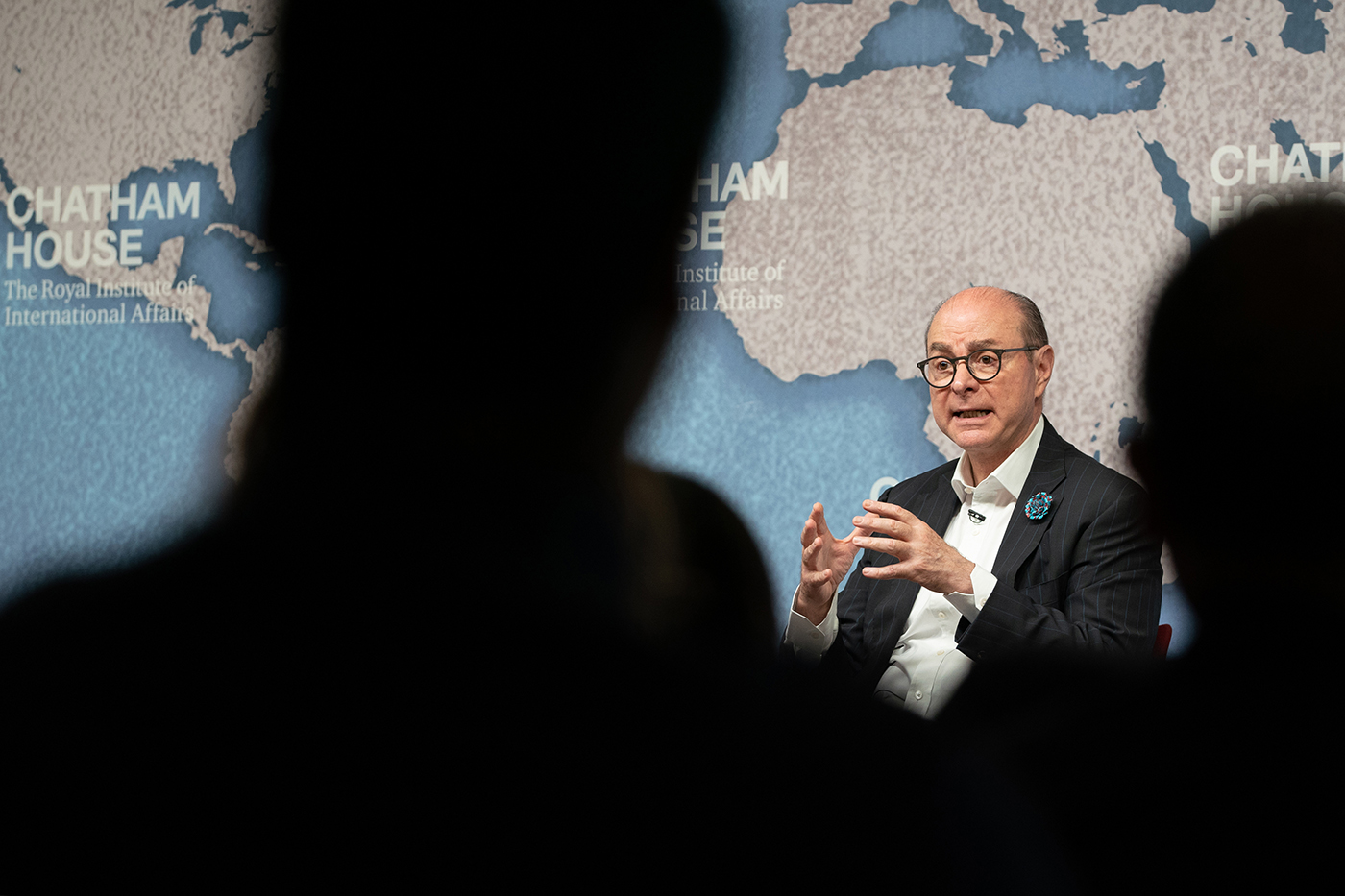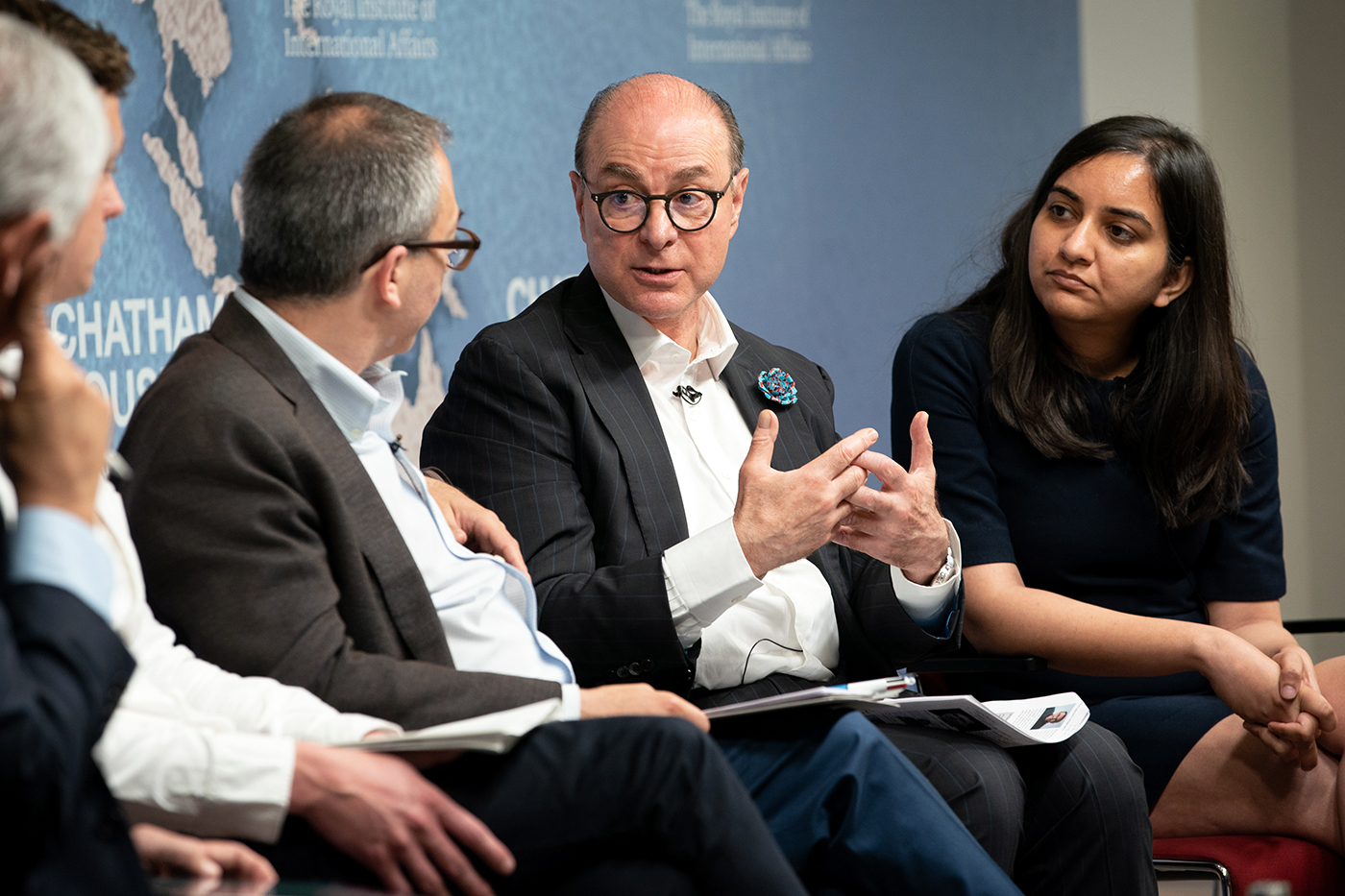Humans can shape the future of artificial intelligence, and not just respond to it, say speakers at Northeastern University Chatham House London symposium

LONDON—Society should not fear the rise of smart machines, and should instead focus on how we can flourish in an age of artificial intelligence, said speakers at a Northeastern University symposium at Chatham House in London on Friday.
The big question everybody is trying to grapple with is who can best make that happen in an age when around half of all jobs in advanced economies are expected to disappear in the next 20 years as advances in artificial intelligence displace human labor.
According to a new, international poll by Northeastern University and Gallup, respondents in the U.K. and Canada suggested governments should play a greater role in providing education and retraining than respondents in the US. Majorities in all three countries said some of the burden should be shouldered by employers.

Joseph E. Aoun, president of Northeastern University and author of Robot-Proof: Higher Education in the Age of Artificial Intelligence, said there is an opportunity for higher education to lead the way in helping people retool and redefine themselves in a future made uncertain by technology.
“We have to rethink completely what we are providing in terms of education,” he told the audience in a packed Chatham House auditorium on St. James Square.

“We have to rethink completely what we are providing in terms of education,” Aoun told the symposium. Photo by Suzanne Plunkett/Northeastern University
Aoun said the students of the future will need to adapt to this changing world by focusing on what makes them unique as humans, and by conceiving and creating ideas that are beyond the capabilities of artificial intelligence and smart machines.
This discipline is an integration of three new literacies—understanding technology, understanding data, and understanding what it means to be human—that together form a curriculum he called humanics. It is at the heart of Northeastern University’s strategic plan Northeastern 2025—a concept of lifelong and experiential learning that will liberate students from outdated career models and give them the opportunity to prosper over the course of their lives.
“Our system [of education] should be based on the idea that you are providing equality of opportunities, not necessarily equality of outcomes,” said Aoun. “If you don’t provide equality of opportunities for people to redefine themselves, to reskill and upskill themselves, then we are in trouble.”
Providing equality of opportunities is not just about ensuring that everybody has a chance to reinvent themselves, but also ensuring that people who design artificial intelligence and machine-learning systems are from a diverse cross-section of backgrounds.
“The future of our society should not be designed just by geeks like myself,” said Kriti Sharma, the founder of AI for Good and a board member at the Centre for Data Ethics and Innovation, an advisory body set up by the U.K. government. “One of the hottest jobs right now in the field of AI is not necessarily a data scientist, it’s an anthropologist or conversation designers, people who can understand the interface of humans and machines. Those are the skills that we are really struggling to hire.”
That diversity will be essential for building public trust in smart machines and assuaging ethical concerns that are raised by the potential of artificial intelligence. Take banking. Financial institutions already use artificial intelligence to make decisions on whether to lend people money.
Bill Winters, chief executive officer at Standard Chartered Bank, said that he understands that some people might have reservations about the ethics of using artificial intelligence to make credit decisions. But he argued that it is no different than the reservations people once had about life insurance companies asking for physical examinations before providing insurance coverage—a precaution that nobody questions today.
For Winters, much of the wider debate around artificial intelligence and how technology is changing the outlook for society is an echo of history.
“At every juncture, going back to the shift from hunter-gatherers to farmers to the industrial revolution, people have been displaced,” he said. “The statistics [today] are very scary because it’s a higher proportion happening over a shorter period of time.”
Yet Winters is not overly pessimistic. In banking, he said, there will remain functions that require human interaction, for instance when talking about financial decisions related to retirement, savings, education, and health.
And Oliver Buckley, executive director at the Centre for Data Ethics and Innovation, said artificial intelligence could provide an opportunity to change the way we think about productivity by favoring quality of work over quantity. It is not just about the jobs that humans can do better than machines, he said, but those that are also beneficial for wellbeing and social cohesion.
“We have an opportunity to do better in the development of AI—we can shape the future and not just respond to it,” he said. “AI should serve society and not the other way around.”
For Aoun, this comes back to the importance of giving people the opportunity to continuously re-educate themselves and stay one step ahead of the machines—something universities have failed to provide until now.
“If you only focus on [students] the ages of 18 to 22, that’s not going to be enough,” Aoun told writer Bella Pollen, who opened the event. “We are all going to need lifelong learning. From this perspective, higher education is facing its golden age—but it doesn’t realize it yet.”
For media inquiries, please contact media@northeastern.edu.





